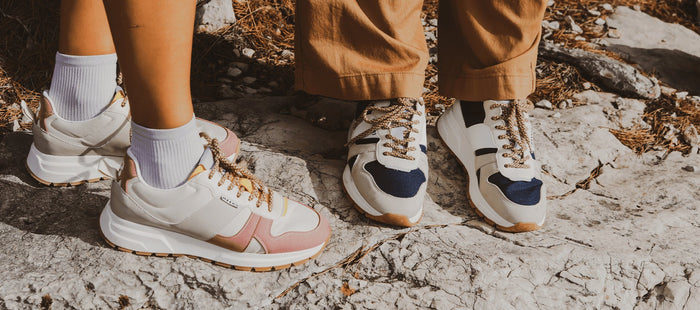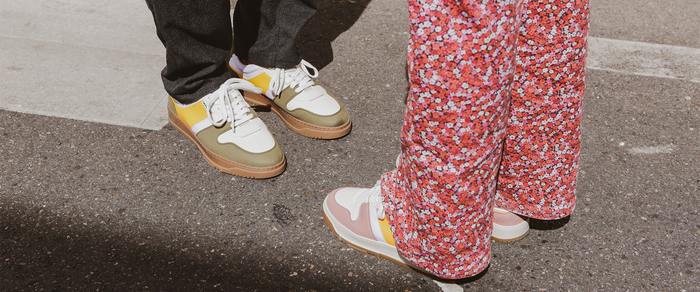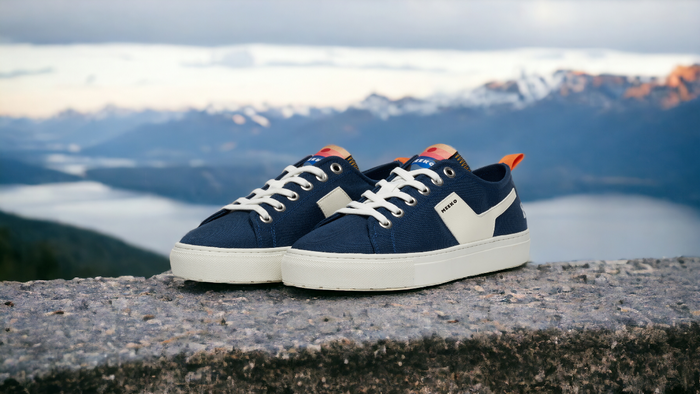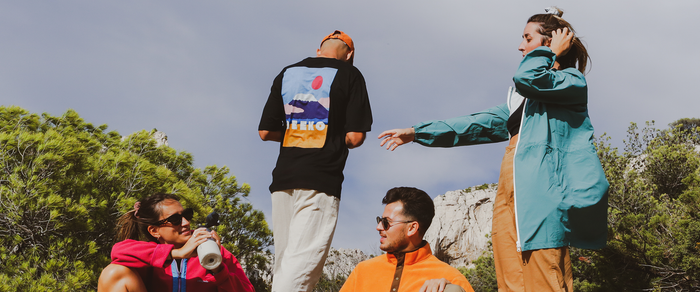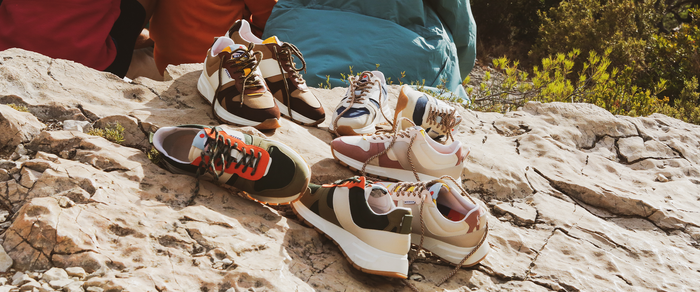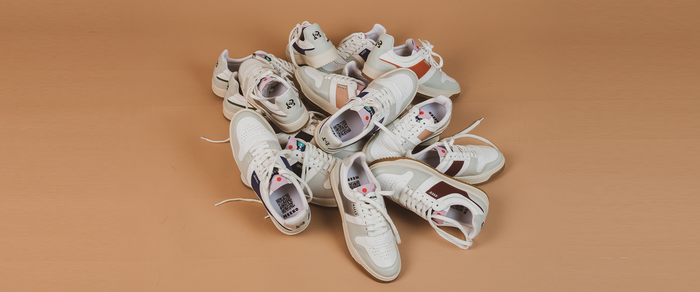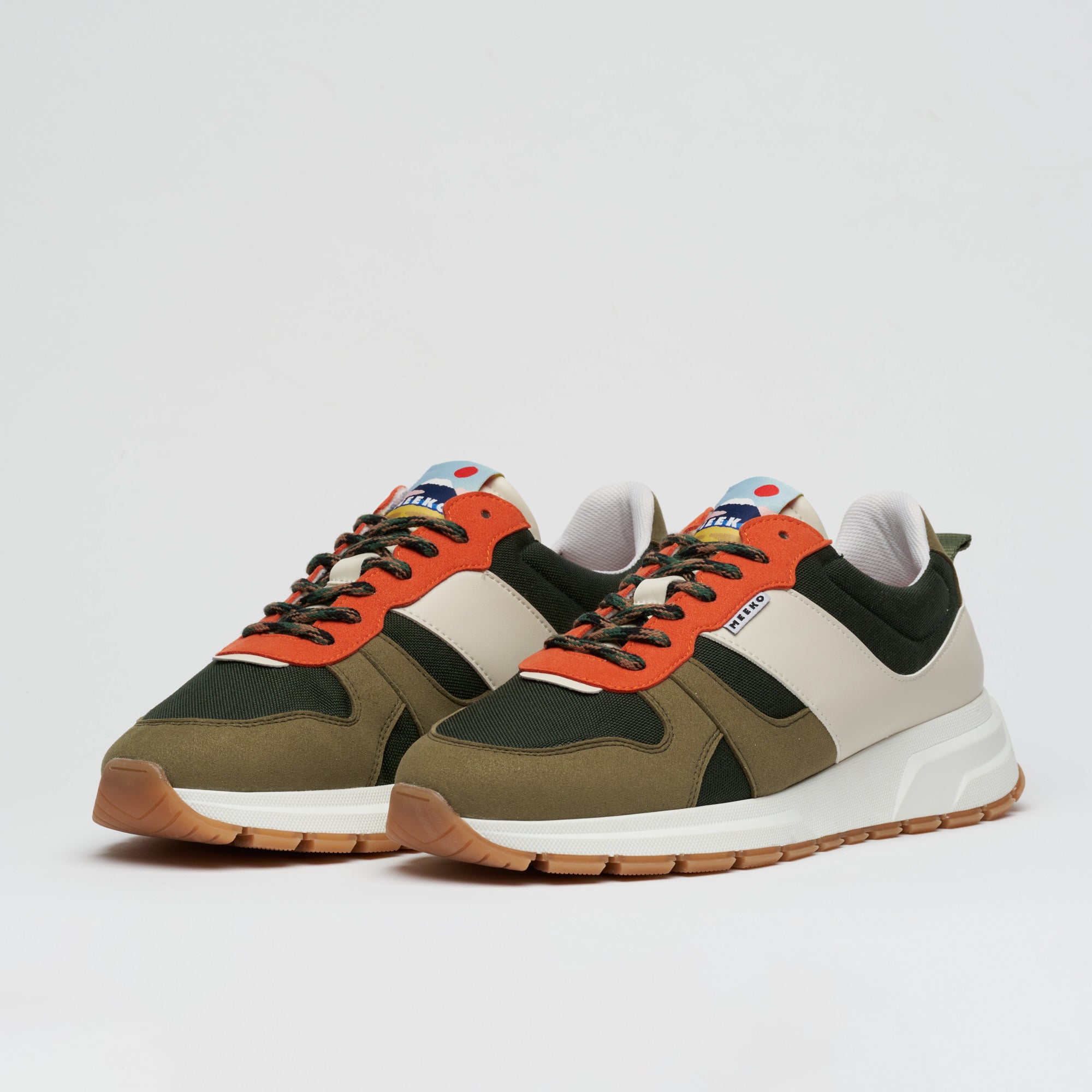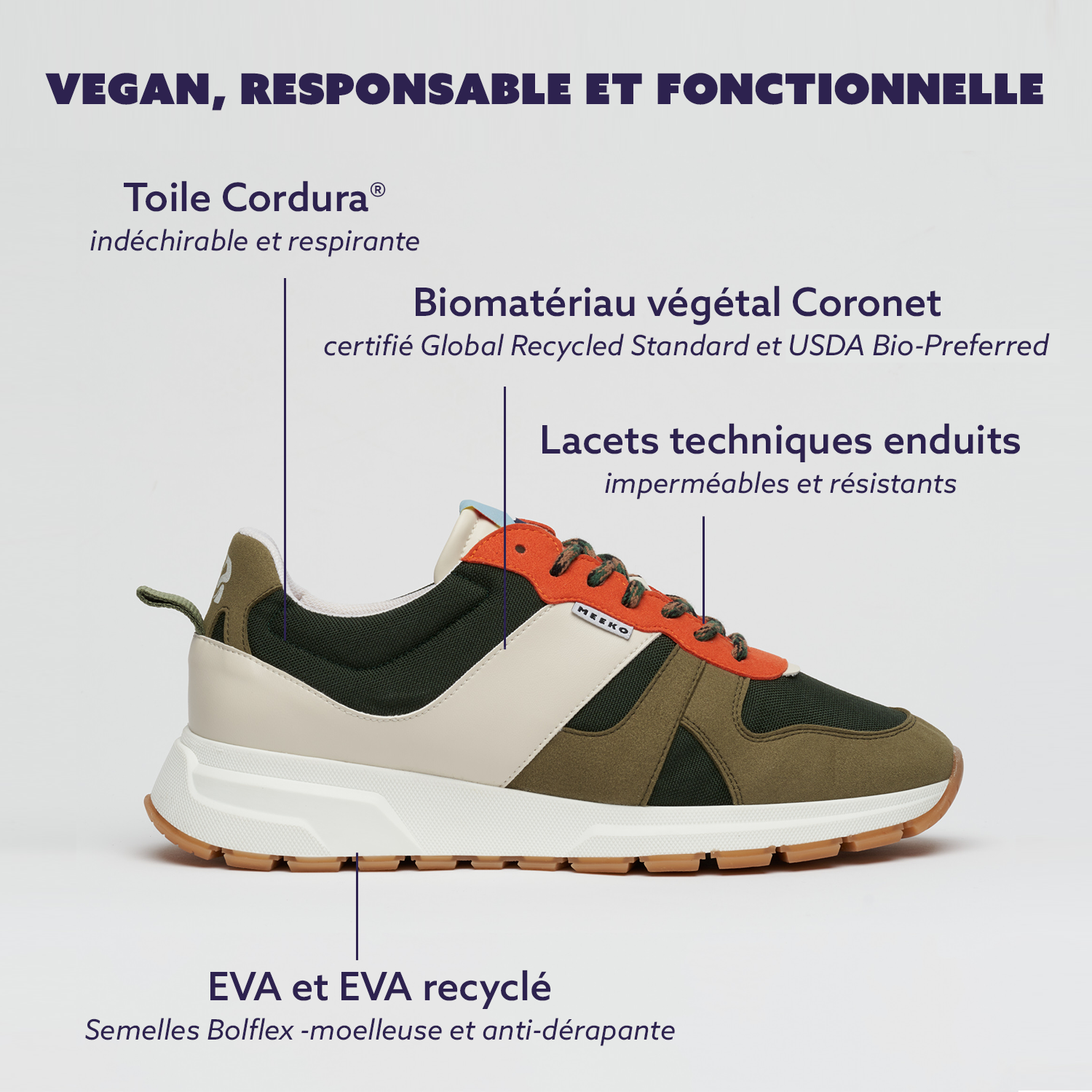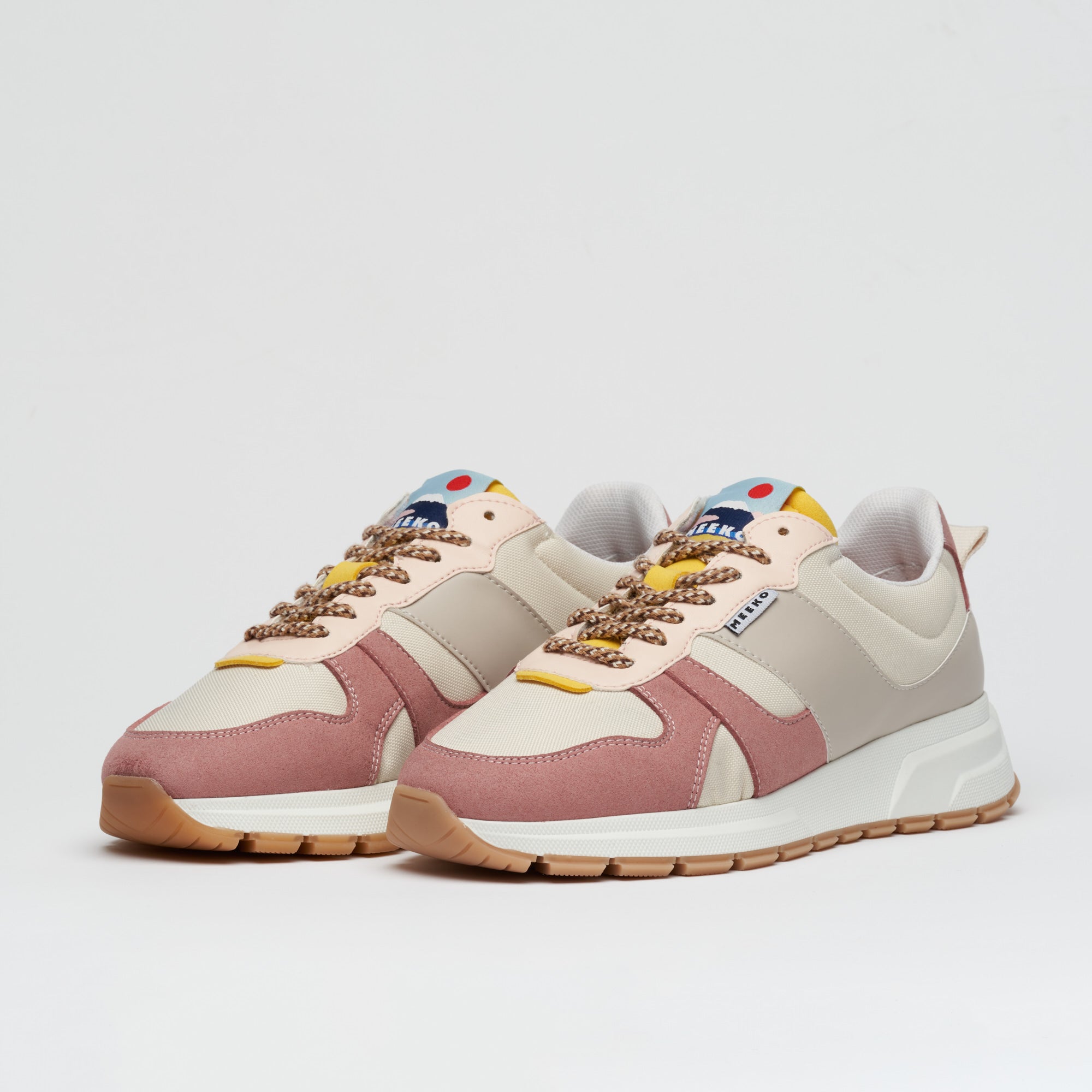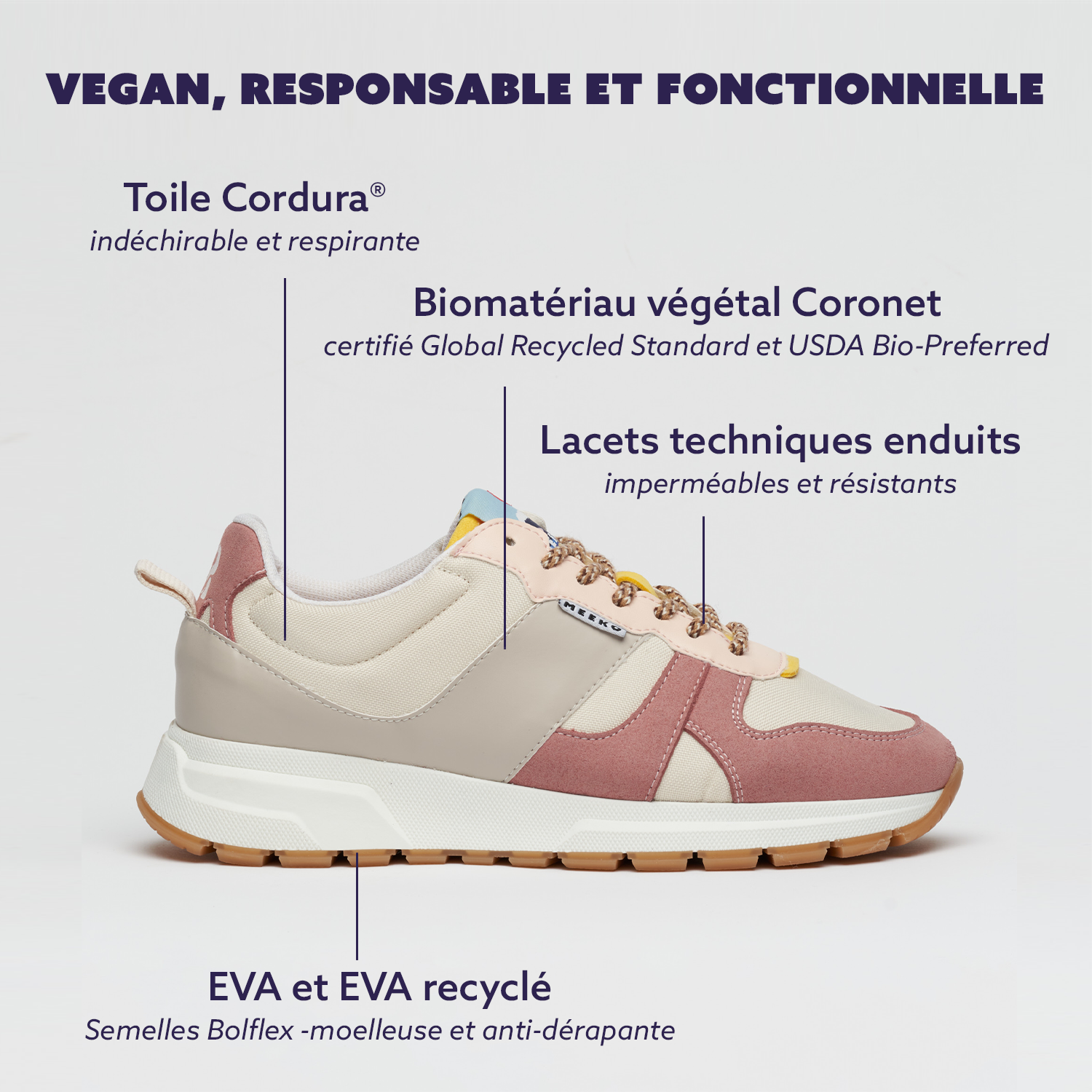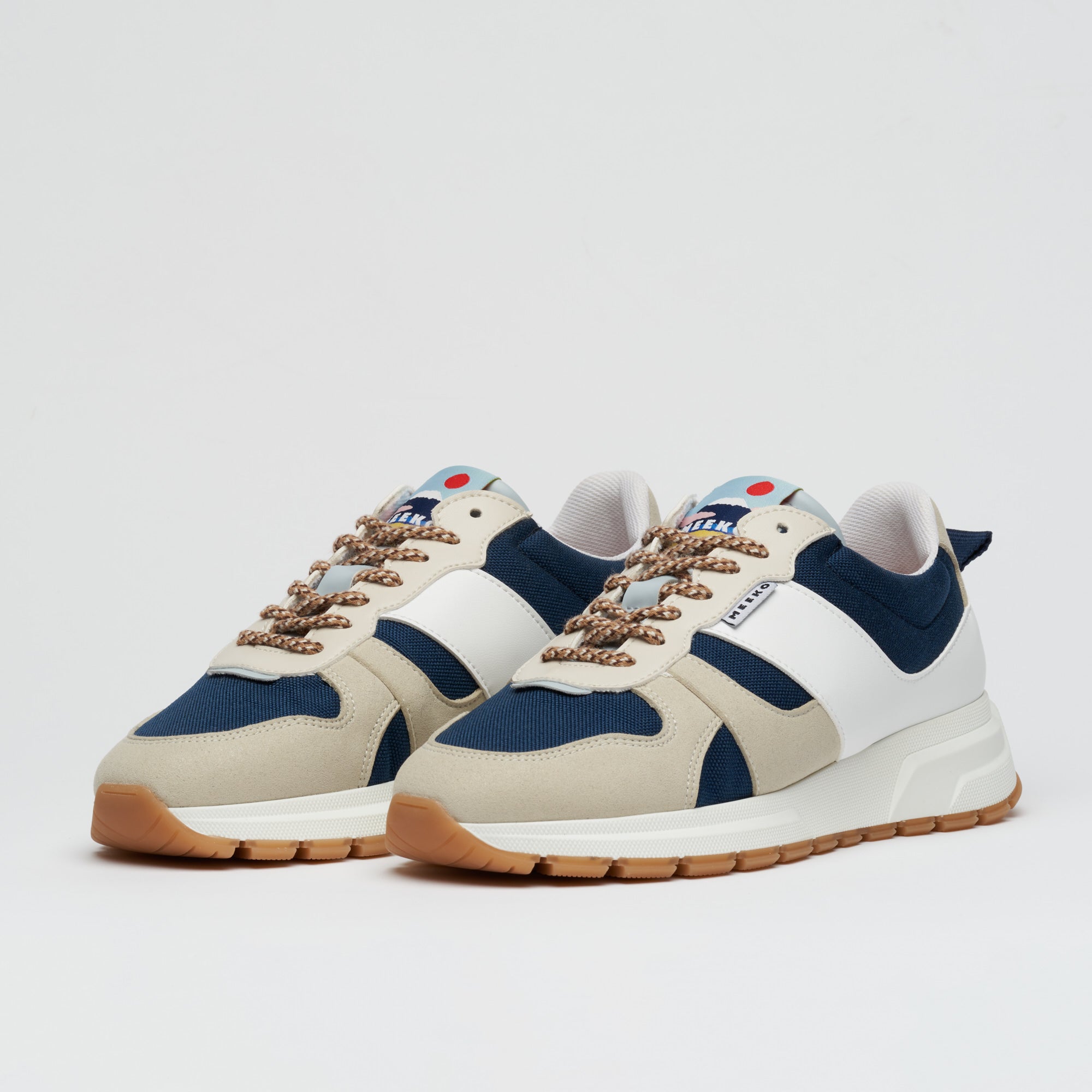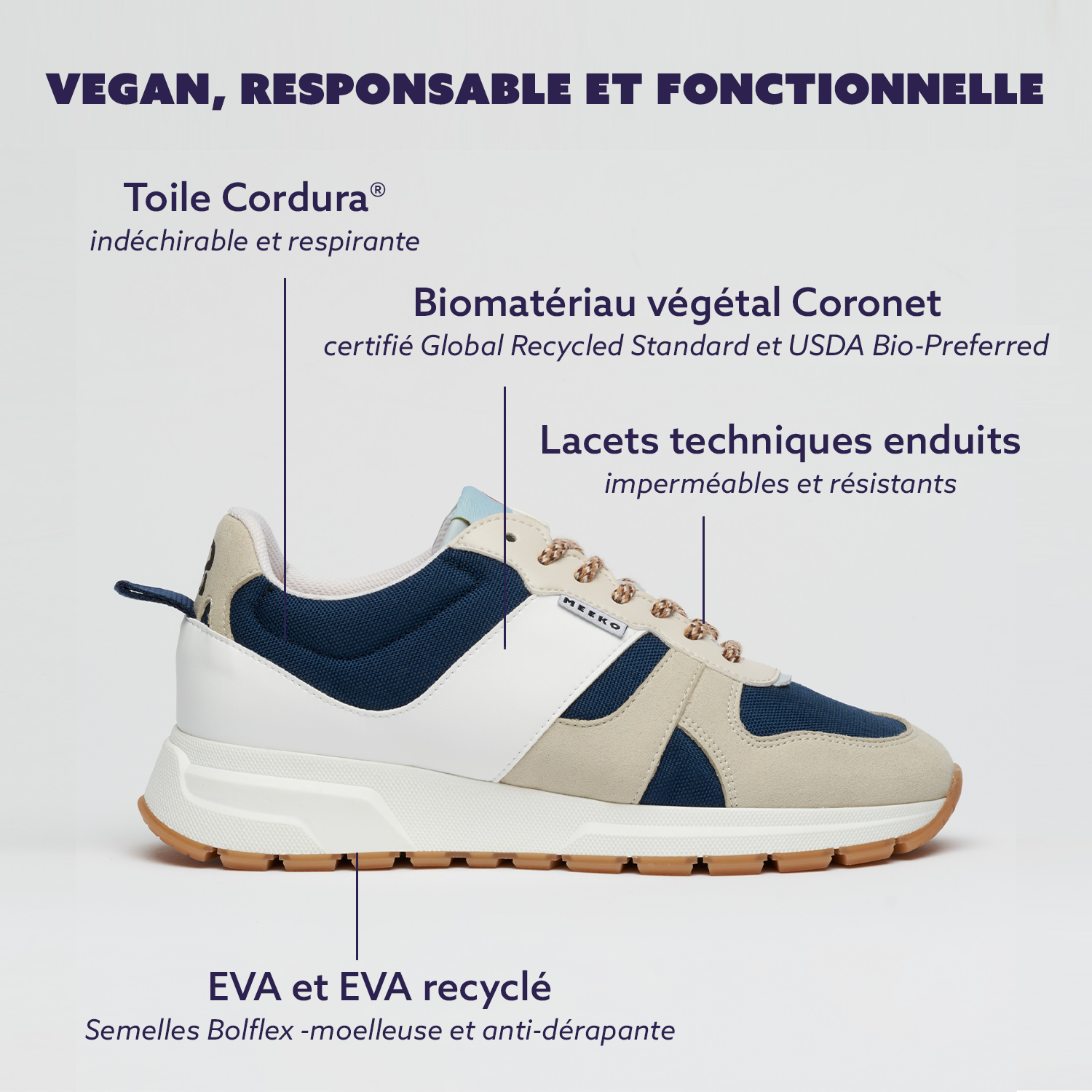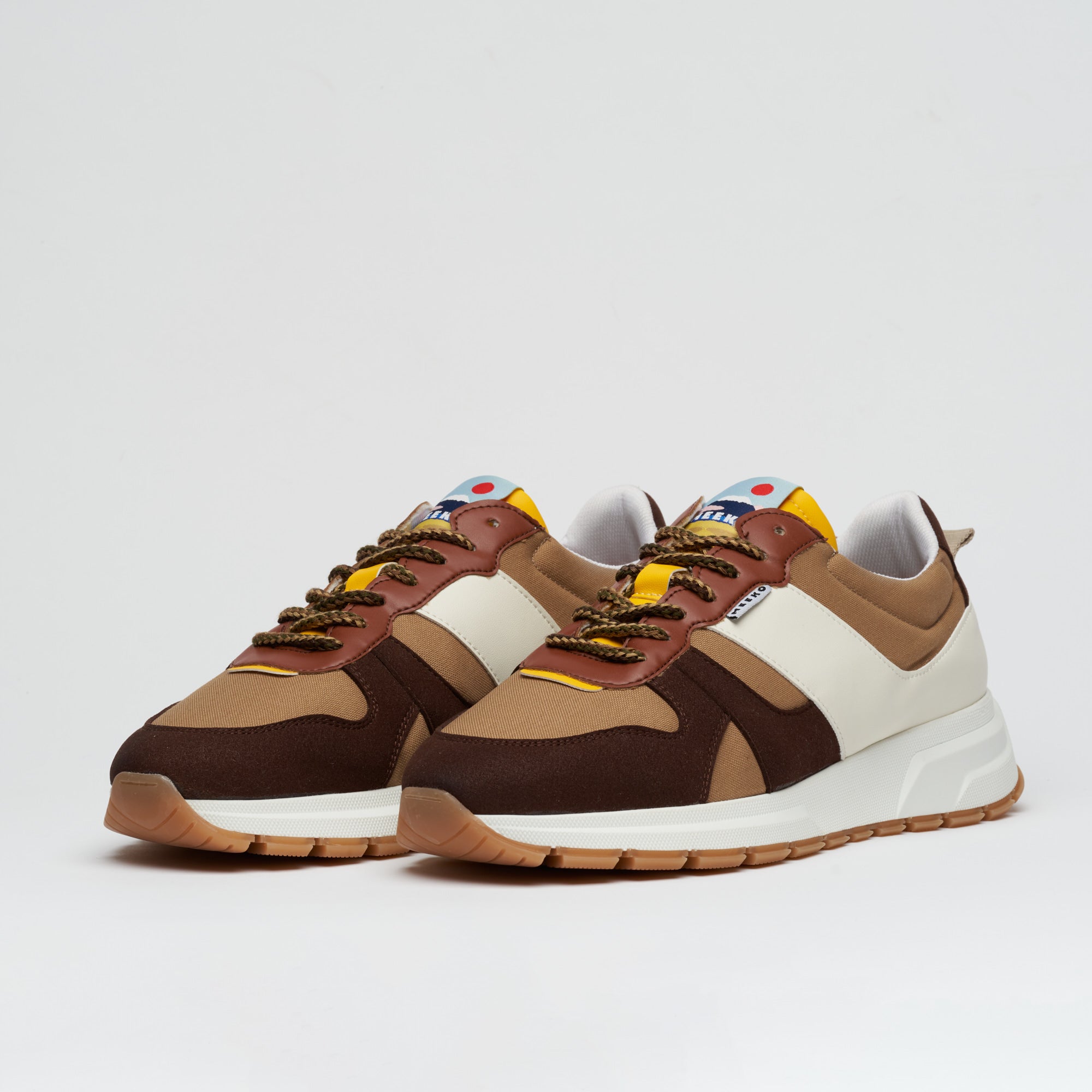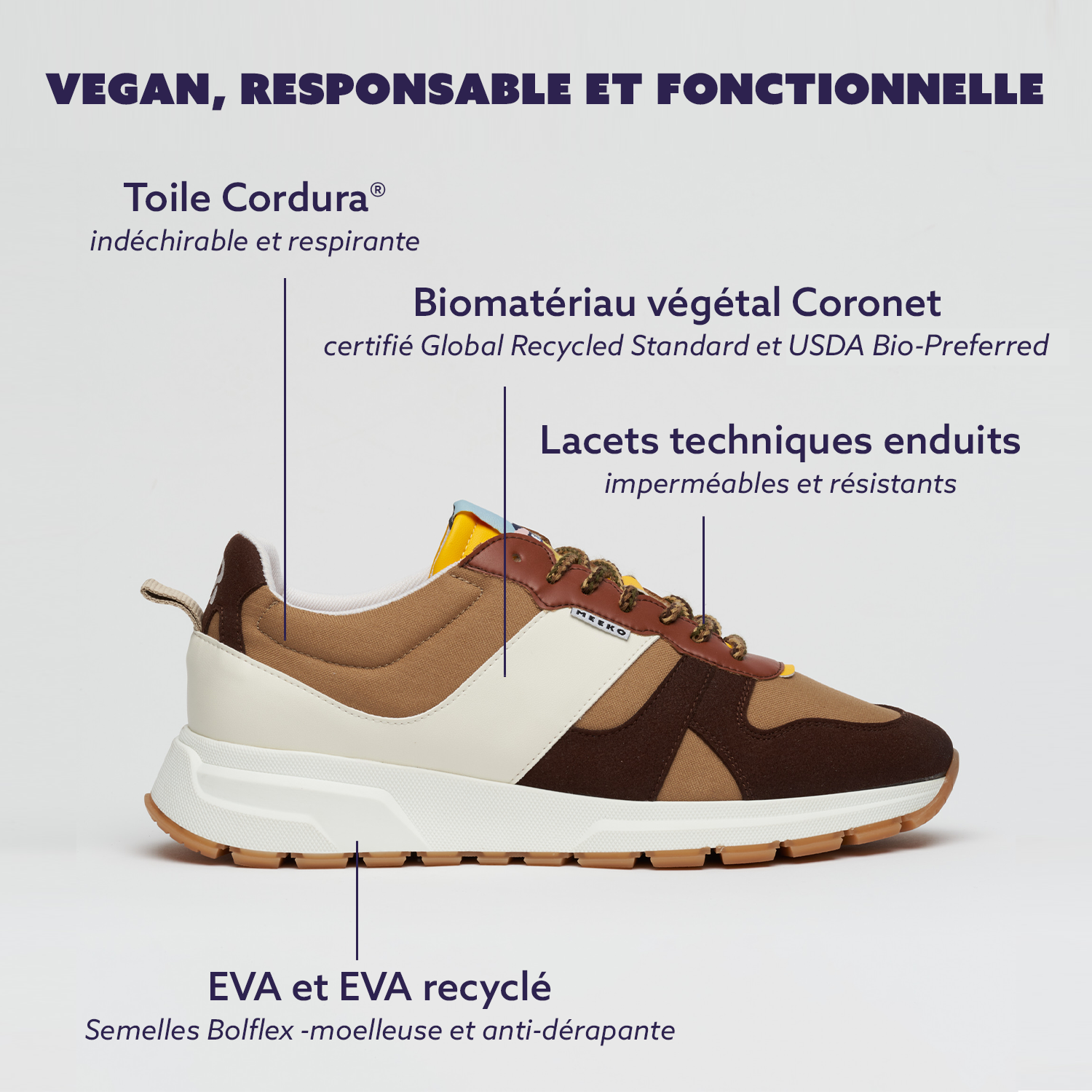What is ethical fashion? We tell you everything
Up-cycling, local production, eco-design, organic cotton… lots of fashionable terms that come up when we talk about ethical fashion and it's not easy to navigate. We prefer to tell you right away, there is no miracle solution but we are moving in the right direction! This article is here to introduce you to the different facets of ethical fashion and help you form your own opinion.
So, what do we call ethical fashion?
Ethical fashion, a meeting of different practices, ways of doing...
Ethical fashion does not have a single definition, it is rather a big theme in which we find different practices and ways of doing things. It is also called sustainable fashion, eco-responsible fashion, conscious fashion or slow-fashion.
But then, why? Over the past thirty years, the design and manufacturing processes in the world of fashion have diversified and also become more complex, which is why (and it is unfortunate) today most of the major fashion brands do not know and therefore cannot control their entire production chain. The manufacture of a garment, an accessory, a shoe, an accessory has become so complex that it becomes almost untraceable (except when you make the effort to ;)). Fashion is a universe where the butterfly effect is omnipresent, each decision made can have an unsuspected impact on the other side of the planet. Fashion is a complex universe, ethical fashion even more...
Faced with this incredible complexity, a global solution is today utopian, the change will go through thousands of local solutions, each initiative is good to take.
Entrepreneurs, players in ethical fashion, are now showing ingenuity and innovation to move the lines, to provide their solutions. These, sometimes incompatible, sometimes complementary, have in any case a common goal, that of a fashion respectful of Man and the environment.
What are some of these solutions?
Textiles in ethical fashion
No clothing without material. The fabric is the basis of everything and the approaches are varied, these options can be combined or not depending on the type of garment.
Natural fibers , ie non-synthetic? These are wool, silk, linen, cotton or cashmere... However, it should be noted that even if they are natural, their intensive production can have a (strong) impact on the environment. The most representative example is cotton, which alone represents 1/4 of the use of pesticides on the planet (!). Despite everything, these fibers have the strength not to use petroleum in their manufacturing process, to be the best for human health and not to contribute to the plastic pollution of the oceans. Some are very low-polluting, such as flax or hemp, which require little water and inputs.
Organic Fibers are natural fibers grown exclusively through organic farming. This is particularly true for cotton which is very polluting if grown conventionally. Several labels exist to ensure the organic production of a textile, GOTS and Oeko-Tex of course but also Natur Textil, Demeter... Very often production in organic farming implies better conditions for workers but that's not all time the case therefore to be noted. Conversely, the Max Havelaar label guarantees impeccable working conditions for cotton workers and is very often associated with organic production, so it is to be preferred.
Recycled fibers are the source of many innovations. The concept here is to recover textiles, very used materials and to undo the threads to make new ones. It sounds simple, but it really isn't! The dream in all this? Achieving a circular economy where each material can resurrect and gives life to another material. Unfortunately, today, recycled fibers are still limited by technical constraints, it is not yet possible to make 100% recycled yarn, it is mandatory to combine synthetic fibers to guarantee durability / solidity material over time, a process that consumes energy and water.

Up-cycled fabrics differ from recycled fibers. Up-cycled fabrics are not the result of a work of decomposition then recomposition of matter. They are taken as is and find a second life through another use. The advantage is that there is 0 matter created. Up-cycling brands are increasingly emerging with the aim of styling and optimizing the second hand, this is the case for example of RESAP PARIS which is in the process of shaking up the codes of up-cycling. -cycling. The disadvantage of this process is the traceability of the fabrics, which is very difficult to do.
Chemical Fibers , presented as being at the top of eco-design, because they are made from renewable materials such as wood or bamboo... We can for example mention Viscose, Rayon, Tencel,...However , be careful to keep a critical mind on these matters. Indeed, the transformation of wood is for example a process requiring a lot of water resources. Bamboo, for its transformation, requires the use of many chemical compounds and energy. The ecological value of the material will therefore depend on the factory in which it is produced. This is also an important point of ethical fashion. Today, very often, the production plant is responsible for 70 to 80% of the material's carbon footprint, so its choice is decisive. If it is responsible and recovers its waste water, recycles its waste, does not reject pollutants, uses renewable or at least optimized energy, then the resulting fabric can be considered green. But unfortunately this is far from being the case for all chemical fiber factories… Traceability is therefore particularly important for judging the quality of these materials.
Vegan Fabrics , avoid all kinds of animal raw materials, ie for example leather (this is the case of MEEKO), wool or even fur. Major brands such as La Redoute are now choosing to ban one or more of these materials.
Ethical production and fashion
Ethical fashion through the prism of production is reflected in several concepts:
Fair or ethical production is probably the best-known negative impact of fashion thanks to or because of scandals such as the collapse of the Nike factory in Bangladesh in 2013 or more recently the Uyghur scandal in China. . The textile industry is indeed one of the most job-providing sectors in the world with nearly 80 million jobs, so it has a leading role to play in the quality of life at work. However, the majority of jobs today are still poorly paid, physically difficult, devalued, with deplorable security conditions and offering no prospect of development. This is why fair production now responds to these issues by guaranteeing compliance with labor standards. The minimum standards to be applied are those of the International Labor Organization. Other organizations have published more ambitious fair labor standards such as WFTO (World Fair Trade Organization) and Fairtrade/Max Havelaar .
The Made in Local , which has the wind at its back right now! Made in Local, very often today associated with Made in France, faces the difficulty of finding adequate suppliers and know-how in France. It is transformed according to the products in Made in Europe (this is the case of MEEKO which finds its know-how in the sneaker in the region of Porto, in Portugal). It is the guarantee, or almost, of meeting the standards of work ethics, because this is controlled at European level in Brussels. The interest of Made In Local is to rebalance the balance and to relocate certain industrial activities in our consumer countries. This makes it possible to recreate local jobs and limit polluting emissions linked to transport.

Natural or non-toxic dyes . Originally dyes were made from plants. Today, this know-how has been largely replaced by chemistry, which makes it easier, more scalable, less expensive and gives bright colors that are resistant to machine washes. So perfect isn't it? Not really, because its main drawbacks have been neglected: heavy pollution, especially of water, and effects on human health that are still not very certain. This is why today we will favor non-toxic dyes (Oeko Tex) or natural dyes when possible.
Ethical fashion responds to transversal approaches
Eco-design : eco-design is the approach of using non-renewable resources as little as possible by preferring the use of renewable resources [...] associated with waste recovery that promotes reuse, repair and recycling ( ADEME ). Eco-design takes into account the social-environmental impacts throughout the life cycle of the product and tries to minimize them. It's about optimizing every aspect from design to recycling, including manufacturing, of course. The solutions are diverse and varied, they depend on the product and its production chain. In the case of shoes, we will try to limit waste related to multi-materials, the sole, ..., to reuse them, to use recycled or innovative textiles (apple, grape, pineapple, which generally have 20 to 40% of "share of the fruit"), to limit transport, ...
Transparency : it is key, for 2 reasons, to avoid the excesses mentioned above in the fashion sector but also (and above all) to restore consumer confidence in the brands they buy. It is now very easy for the consumer to get lost in the midst of dozens of marketing speeches around "Greenwashing" and it is very hard for an uninformed user to disentangle the true from the false.
Slow Fashion = Quality : taking the time to develop a product is a guarantee for the consumer of its durability. Today, consumers need to be educated in responsible consumption (difficult in the age of SHEIN or Boohoo, which are a hit) and favor clothes and shoes that are a little more expensive (at the right price) but of certain quality and durable over time. .
Consume less : this goes back to the point above. We would like to remind you that the most eco-responsible act you can do is to buy less often. The cleanest shoe is the one that is not produced (!). That's why at MEEKO we are committed to producing the most eco-responsible / sustainable sneakers possible without compromising style.
To conclude, we hope that this article has given you a better understanding of the ins and outs of what is popularly called ethical fashion (we should simply call it real fashion). The subject is complicated but it is precisely what fascinates us, we can all in our consumption be an actor of a lasting change at the macro level of the planet, without jeopardizing our style at the micro level of course!
